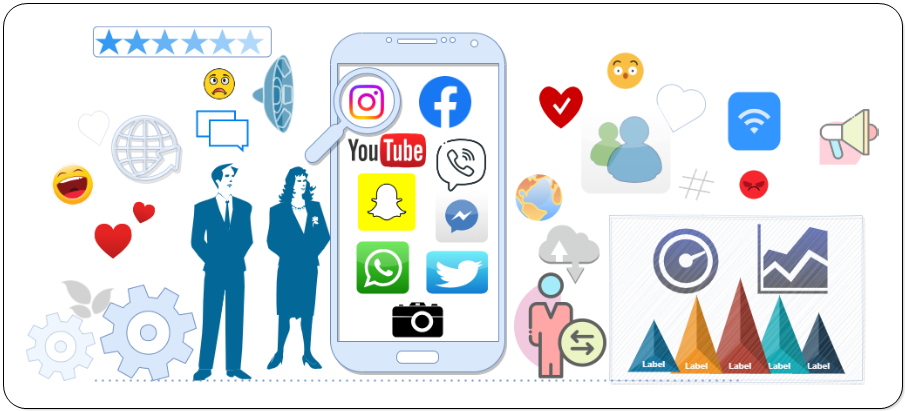MEDIA AND ENTERTAINMENT

Media and entertainment cover a diverse range of sectors that engage in the creation, dissemination, and consumption of material with the aim of engaging large audiences. Nowadays, the media has emerged as a very influential and potent medium on a global scale. Also, the utilization of media has experienced a significant surge in recent decades. The phrase encompasses several forms of communication, including print, digital, and electronic mediums. The media sector is undergoing continual transformation and facing more competition in a market that demands lower operational costs and higher income from content delivery. Content development is a crucial aspect in this transformation.
The media sector has witnessed significant advancements and seen a significant transformation in recent years, leading to a substantial growth in the use of Machine Learning and Artificial Intelligence technology. AI and ML contribute to the media sector by enhancing the interactivity, appeal, user-friendliness, and efficiency of visual material. Artificial intelligence (AI) has become an indispensable component of the media landscape, including many aspects such as movie suggestions on streaming platforms and personalized content development.
The use of recommendation systems driven by artificial intelligence is improving the quality of entertainment by helping users discover more material that suits their tastes. New possibilities in content production have also emerged as a result of machine learning, which has helped artists, musicians, and filmmakers refine their techniques and provide audiences with more unique and tailored experiences. Creativity and audience engagement are being transformed by this shift in the entertainment sector.
Machine Learning in Media Industry
The worldwide media and entertainment business is experiencing rapid and significant expansion. Users have the ability to view a limitless amount of information without any interruptions due to the utilization of machine learning-enabled high-speed network infrastructure and popular video streaming services.
The use of machine learning has been revolutionary in many areas of media business, including the production, distribution, and consumption of information. Among the many important functions of ML in the media sector are:
| Content Recommendation |
|
|
| Creating Content |
|
|
| Predictive Analysis |
|
|
| Advertising Targeted and Personalization |
|
|
| Content Filtration |
|
|
The integration of AI/ML with media offers substantial prospects for expansion and advancement. Through the utilization of these technologies, media firms have the ability to produce novel ideas, optimize their operational procedures, and provide customized content to their audience. Employing this strategic approach will distinguish firms in a swiftly evolving media environment, where attention is fiercely coveted.
Conclusion
In conclusion, the media and entertainment business is leading the way in technological advancements, propelled by artificial intelligence (AI) and machine learning (ML). These technological innovations have completely transformed the process of creating, distributing, and engaging with material, providing personalized suggestions, predictive analysis, and focused advertising. Utilizing these technologies is essential for maintaining competitiveness and satisfying audience needs as the business progresses.
The entertainment sector is being greatly influenced by machine learning, while its complete capabilities have not yet been fully achieved. With the use of AI and ML as potent instruments, the sector is positioned to persistently captivate consumers and influence cultural narratives in the foreseeable future.
